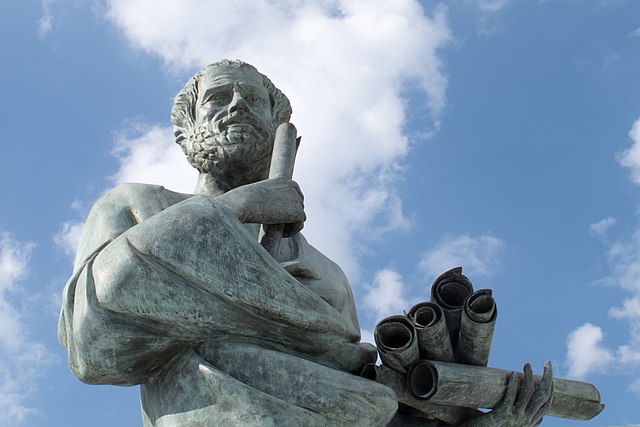
Philosophers: 4: Aristotle
Aristotle: Student And Teacher Of The Greats
Aristotle was one of the most influential philosophers of the ancient world. He was born in 384 BC in Stagira, Macedonia, and died in 322 BC in Chalcis, Euboea (One of the Greek islands). He was a student of Plato and teacher of Alexander the Great. Aristotle’s works cover a wide range of topics, including metaphysics, ethics, politics, and natural philosophy.
Ethics And Metaphysics
Aristotle’s most famous works are his treatise on ethics, Nicomachean Ethics, and his treatise on metaphysics, the aptly named Metaphysics. In Nicomachean Ethics, Aristotle sets out to study the nature of human happiness. He argues that happiness is the highest good, and that it can be attained through virtuous action. In Metaphysics, Aristotle examines the nature of reality and being. He argues that there are different levels of reality, and that the highest level is the one that can be understood through pure thought.
Virtues
The Nicomachean Ethics is composed of ten books. In book one, Aristotle discusses the concept of happiness and how it should be pursued. He argues that happiness should be pursued for its own sake, and not for any external rewards or honors. He also explains that the highest form of happiness is achieved through living virtuously. In book two, Aristotle explains the different types of virtues and how they contribute to living a happy life. He argues that there are two types of virtues: intellectual and moral. Intellectual virtues are those related to knowledge, such as wisdom and understanding. Moral virtues are those related to character, such as courage and temperance.
Friendship And Happiness
In book three, Aristotle explains the importance of friendship in achieving a happy life. He states that friendship is essential for leading a fulfilled life. He also explains that friendship can be divided into three categories: utility friendships, pleasure friendships, and good-will friendships. In book four, Aristotle explains the concept of justice and how it should be applied to society. He explains that justice involves giving each person their due, and that it should be applied fairly and equally. He also explains that justice should be used as a guide for social and political life. In book five, Aristotle explains the concept of pleasure and how it should be pursued. He explains that pleasure should be pursued in moderation and that it should be used to supplement, rather than replace, the pursuit of virtue.
Aristotle’s philosophy has also been used to support various political and religious beliefs. In addition, he is famous for his writings on logic. He wrote the Organon, a collection of works on logic and reasoning. In the Organon, Aristotle sets out the principles of deduction and induction, and provides an analysis of syllogisms (conclusions that are drawn from several premises). His works on logic were highly influential in the development of modern logic.
Still further, Aristotle’s works on Science and Biology are also noteworthy. In On the Parts of Animals, he provides a detailed analysis of the anatomy and physiology of living creatures. He also wrote extensively on astronomy, meteorology, and geology. His writing on these topics contains some of the earliest scientific treatises in the Western world.
Aristotle, then, was someone whose work influenced a wide range of subjects, and significantly so in each case. As such, he will continue to be remembered as one of history’s great philosophers.
You can find articles on 3 other influential philosophers by clicking on their names below.